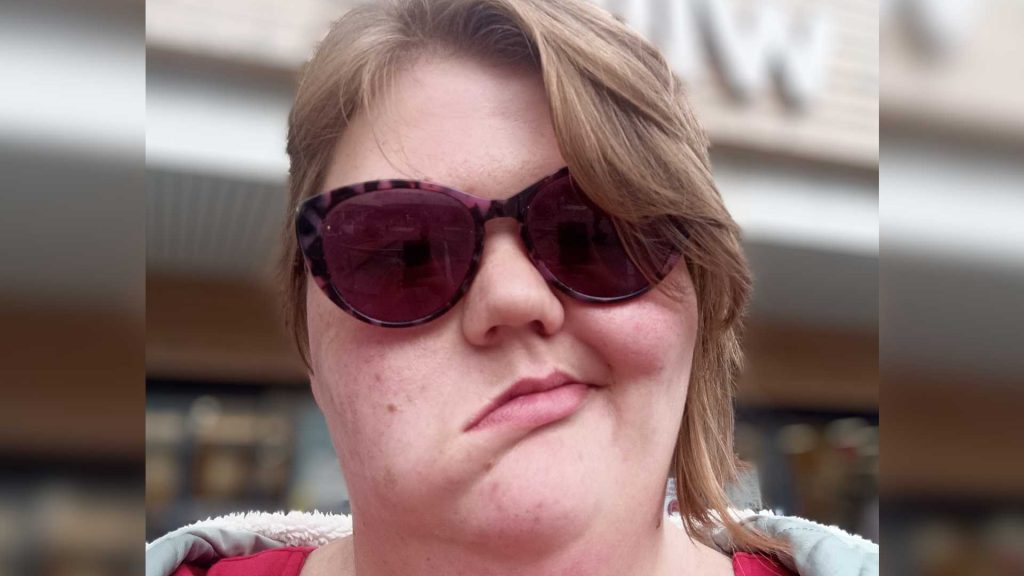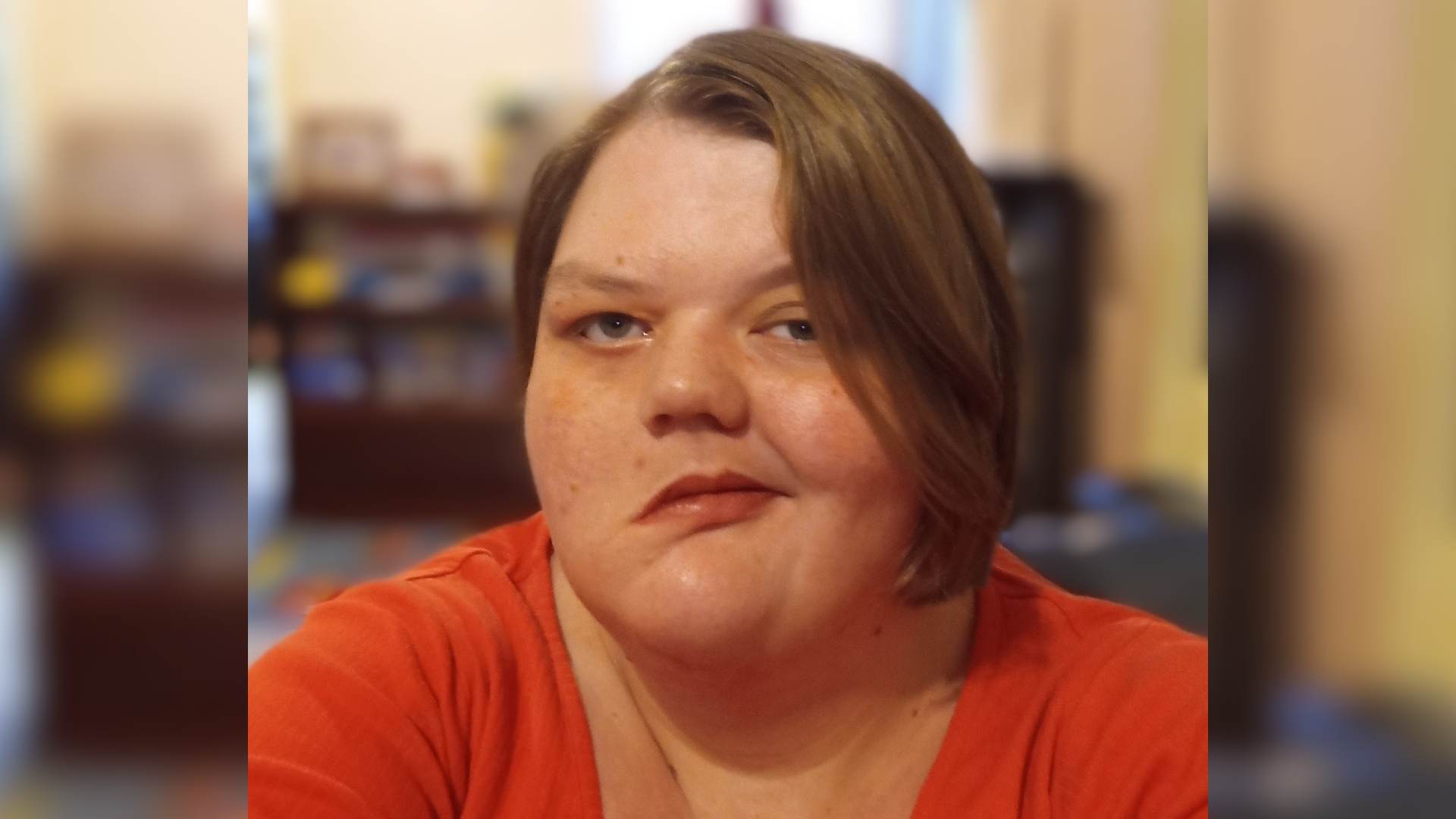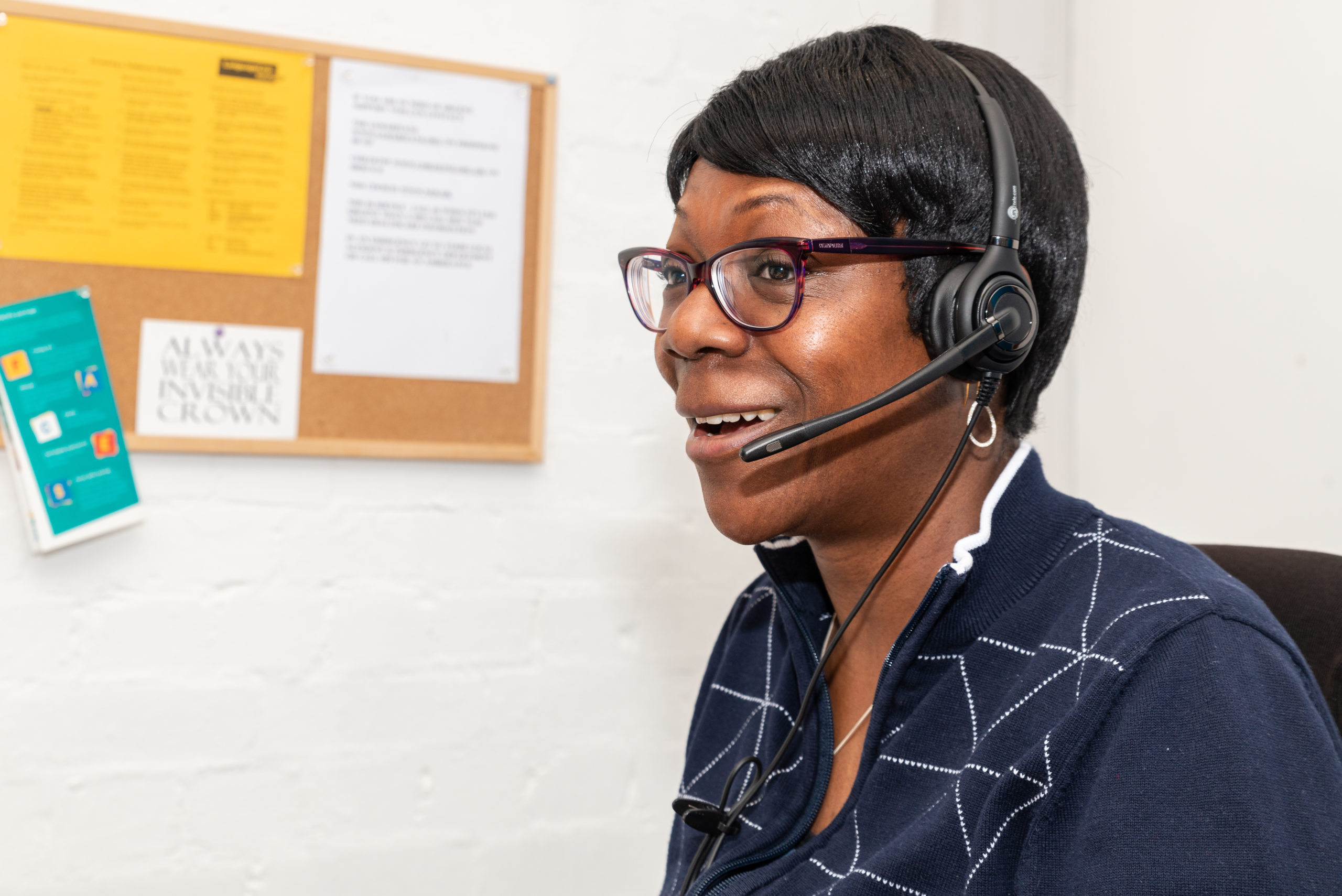I’m Catherine, and I have recurrent paralysis on the left side of my face, due to a facial nerve tumour.
My visible difference has impacted me throughout my life. From the ages of two until 28, I had no specified cause for my facial paralysis. This wasn’t for lack of trying to get a diagnosis – my mum and I just seemed to be blocked at every turn from getting the answers we wanted.
When I was under 18, my mum was told that there wasn’t any help or intervention available to support and possibly diagnose my condition. When I became an adult, the reason was because there was no funding for over 18s. It was years of being passed from pillar to post, and never seeming to be able to access a professional opinion beyond my GP.
I’d be sitting in the hospital waiting room feeling a strange mix of hope and jealousy for the children there who were being treated correctly.
At 24 years old, with all the pushing I could do alone, I got a general neurology appointment and an MRI scan. Unfortunately, it wasn’t a specialised MRI, and I was misdiagnosed with Bell’s Palsy.
When I was 28, my GP told me he didn’t know how to help me, and that I would need to find my own support by looking for a charity for people like me. That’s when I engaged with Facial Palsy UK.
It wasn’t until the age of 29, with a lot of support from Facial Palsy UK, that I managed to get a referral for a specialist opinion. From that, I got a range of scans done and a full work up of my condition. I FINALLY got the correct diagnosis, thanks to seeing the right specialists – specialists who I could have been referred to at any age. It turned out that I had facial paralysis due to a very rare facial nerve tumour called a schwannoma. Now I have a broad team supporting all my physical paralysis needs, and I’ve even had some surgery.
While I was glad to have the answers and support that I’d wanted for so long, it was frustrating to know that I could have had this diagnosis much sooner if I’d simply been seen by the right people as a child. I’d be sitting in the hospital waiting room feeling a strange mix of hope and jealousy for the children there who were being treated correctly.
However, while things have improved since I was a child, I know there are still a lot of people like me out there who are struggling to get the correct diagnosis too, being told the same things due to a lack of professional awareness. This is why I decided to get more involved with Facial Palsy UK, and now Changing Faces, in the hope that I can raise awareness of visible differences and ensure people are treated right in the future, both medically and socially.
Changing Faces’ 1-2-1 counselling enabled me to unpack how I felt about accessing mental health support in an environment where I felt understood and safe.
Not only was I being let down by the healthcare system, but I was also dealing with consistent bullying and harassment for the way I looked during my life too.
I was lonely and ultimately desperate to feel wanted, and this opened me up to being used by those around me. I had some disastrous friendships and relationships as a result. I couldn’t see where I was being manipulated and simply accepted the abuse as “normal”. Thankfully, I met my current partner, who I was friends with before we entered a relationship, and this helped break the destructive cycle I was in. I saw what I was worth as a person, not a pawn.
My worries didn’t end there though. I found that my visible difference started to impact the lives of my family as well as mine. My husband has been accused of abusing me by strangers because of the way I look, and people have not only passed comments on me in front of my daughter but have actively taken their children away from playing with her, after seeing me.
All of this was mentally exhausting, and I came to be in a bad place. I had sought out mental health support before but was told I was “too complex” to treat. I was worried I’d end up being sectioned if I tried to get further help and had almost given up, but at a Facial Palsy UK Support Group, I heard about Changing Faces’ wellbeing services.
Changing Faces’ 1-2-1 counselling enabled me to unpack how I felt about accessing mental health support in an environment where I felt understood and safe. My wellbeing practitioner gave me the courage to reach out for help again, and I was able to approach it with a much better mindset. I have since fully engaged with all NHS services offered and now pay for private therapy to ensure I manage all aspects of my condition, both mental and physical. Without Changing Faces I might still be in that dark pit, unable to ask for the support I so desperately needed.
I’ve reached a place now where I want to use my experiences for positive change. Campaigning for Facial Palsy UK and Changing Faces has enabled me to develop a new level of strength in who I am. Difference doesn’t have to be a bad thing; it can lead to once-in-a-lifetime opportunities and the creation of amazing communities.

Catherine wants every person with a visible difference to be able to access support
I now have a whole network of people who understand me, whether they have my condition or not. This solidarity is so powerful, and I no longer feel like I’m tackling life with a visible difference alone.
I’m so proud to be part of this movement of people, because everything I do feeds into developing a better world for my daughter and other generations to come. Empowering yourself through empowering others is an incredible feeling.
I’d love to see healthcare for people with a visible difference take a more informed and holistic approach, with the mental impacts considered alongside the physical. Healthcare professionals need to listen to what the visible difference community is telling them, as a collective and as individuals, otherwise there will continue to be people like me who struggled for decades to get the answers they needed.
I also want there to be more support for our “plus ones”. Often, the impact of a visible difference on a person’s family and friends isn’t considered, but it needs to be. For example, my partner was hugely comforted by the fact he got to meet others like him (partners of people with a visible difference) at a Facial Palsy UK event we attended.
At the end of the day, most of the challenges we face boil down to society’s attitudes towards those of us with a visible difference. Only through campaigning can we change this and I’m proud to be playing my part.

